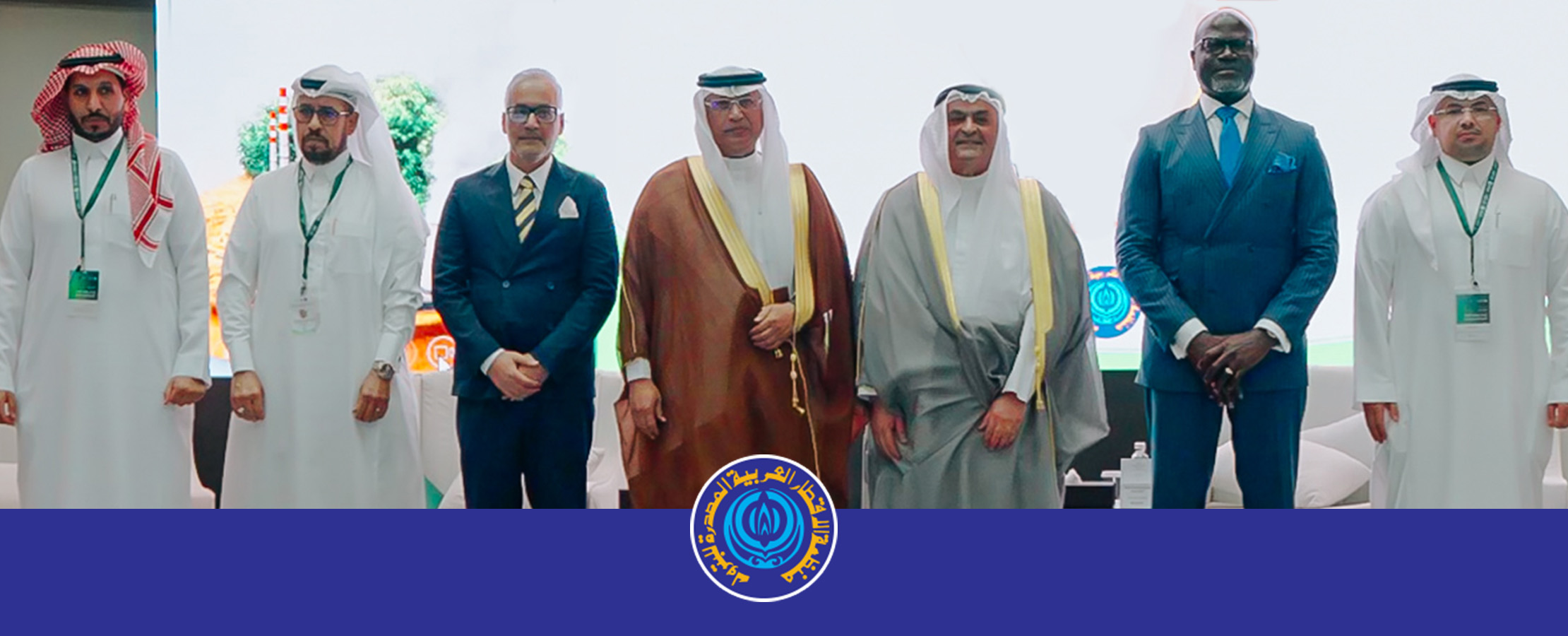Symposium on Pathways to Reduce Carbon Emissions in the Petroleum Downstream Industries
Opening and scene setting remarks
Delivered by Ali Alsamawi, IEF Senior Energy Analyst, representing Secretary General Jassim Alshirawi
Ladies and gentlemen, good morning
I would like to express my sincere gratitude to the organizers for hosting this remarkable session. It is a great pleasure for the International Energy Forum to share its perspectives alongside leaders from diverse organizations and distinguished experts. Together, we are sharpening our focus on effective pathways to reduce carbon emissions in the petroleum downstream sector.
This session is taking place at a time marked by significant uncertainties surrounding global economic growth, international trade, and, most importantly, energy security.
The world is confronting significant challenges in achieving decarbonization across all sectors. Industrial activities contribute a substantial portion of global greenhouse gas emissions. Advancing comprehensive decarbonization strategies within the downstream petroleum sector is essential to ensuring operational resilience, enhancing energy security, and promoting market stability—while also delivering tangible environmental benefits.
The IEF continues to encourage both producer and consumer countries to intensify their focus on advancing carbon management solutions, particularly carbon capture, utilization, and storage technologies, by increasing investment in their development and deployment.
The IEF has launched serval sustainable related initiatives, such as the Methane Mitigation Initiative in collaboration with Kayrros (2021), it employed Satellite imagery and AI tools to monitor & measure methane emissions.
The Global Energy Solutions Initiative with S&P Global, is another example that brought together 350 participants, in 11 dialogues and roundtables in 7 locations across the world during 2022 & 2023 expanding this initiative is being considered.
The IEF also helped to initiate the Carbon Management Challenge, which brings together 20 countries to accelerate the scale up of carbon capture technologies and set a storage target of 1 gigaton of CO2 per year by 2030.
Reducing emissions is needed, but the transition to a green economy must be just and orderly for all. Failing to align climate action with sustainable development often poses risks to ecosystems, economic prosperity, and human well-being.
Many governments and businesses have recognized carbon management technologies as one of the primary tools for addressing climate challenges.
Here, the rising climate ambition of MENA countries will lead to clean industrial renewal at home and turn the region into a trailblazer for the world. Over the next decade, the region will provide at least 50 megatons of CCUS capacity—more than is available worldwide today—and become a major producer of clean hydrogen and base materials, including petrochemicals and clean steel. Deploying more of these technologies in the MENA region will enhance competitiveness and boost exports.
Regional collaboration on the Circular Carbon Economy, significant progress in the Saudi Green Initiative and the Middle East Green Initiative, as well as the historic hosting of COP27 and COP28 by MENA countries, All demonstrate the region’s commitment to globally shared climate and sustainable development goals.
This is in addition to the more recent advancements in voluntary carbon markets. Carbon markets can play a crucial role in financing carbon management solution projects.
By integrating CCUS technologies, increasing CO2 utilization, and by making use of digital technologies to increase efficiency, refineries can maintain their competitiveness in a world that increasingly demands low-carbon products.
The Circular Carbon Economy and Carbon Management Challenge that the IEF continues to support provide viable frameworks for reducing carbon emissions from the downstream petroleum sector through effective carbon management solutions. The growing demand for such technologies to combat climate change while reducing market volatility and affordable access for all presents a unique opportunity for entrepreneurs and investors to develop new business models and value chains.
While government support and subsidies remain critical, they are not sufficient on their own to scale these solutions. Investments in clean technologies must transition from the 'mega' to the 'giga' scale to effectively address interrelated climate, reliability and affordability challenges. Without ensuring energy security and maintaining market stability at affordable prices climate goals will not be reached.
The IEF’s call to accelerate CCUS investment and prioritize emission intensity over color classifications in the deployment of clean hydrogen has become even more critical in light of the multiple, interlinked crises we face today.
The coming months and years will be critical for restoring the market balance and strengthening investor confidence in the policy and technology solutions we need.
Let us seize this opportunity to innovate, invest, and cooperate. The future of our industry is bright but will continue to rely on the goodwill and trust producers and consumers built over the years.
The International Energy Forum remains actively engaged and will continue to foster dialogue, leverage global markets, strengthen partnerships, and enhance data transparency in support of the just and orderly transitions we all seek.
I look forward to participating in today’s discussions and gain deeper insights into the pathways for reducing emissions in the petroleum downstream sector.
Thank you






